Filter by
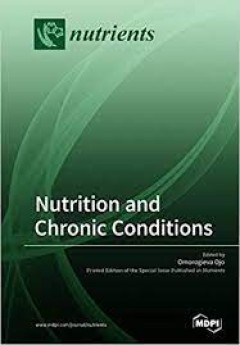
Nutrition and Chronic Conditions
The effects of nutrition in chronic conditions, such as diabetes, cardiovascular disease, dementia, stroke, and inflammatory bowel disease continue to generate interest among researchers. This stems from the fact that diet is a modifiable risk factor for these diseases, which manifest either as single entities or in co-morbid states in individuals and populations around the world. In particular…
- Edition
- -
- ISBN/ISSN
- 978-3-03897-603-5
- Collation
- -
- Series Title
- -
- Call Number
- 572 NUT
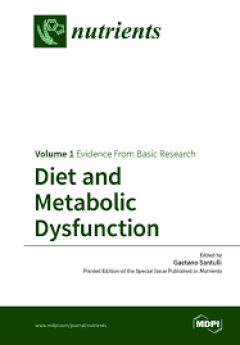
Diet and Metabolic Dysfunction Volume 1 : Evidence From Basic Research
The purpose of these books is to have an updated systematic overview examining, in detail, the functional role of different diets and dietary components in maintaining glucose homeostasis and preventing long-term complications. The first book includes experimental evidence from preclinical research, whereas the second book provides studies in the clinical scenario.
- Edition
- -
- ISBN/ISSN
- 978-3-03842-323-2
- Collation
- -
- Series Title
- -
- Call Number
- 572 DIE
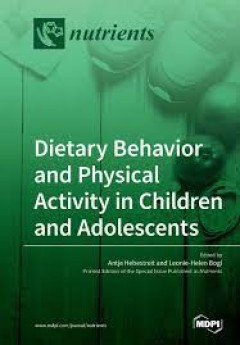
Dietary Behavior and Physical Activity in Children and Adolescents
In recent years, diet- and lifestyle-related disorders have become a major health threat in Europe and worldwide. The contributions in this monograph include 2 review articles and 19 original contributions from several countries that provide new information on the existing research elucidating important aspects of children’s and adolescents’ nutrition and lifestyle behavior. The data includ…
- Edition
- -
- ISBN/ISSN
- 978-3-03921-601-7
- Collation
- -
- Series Title
- -
- Call Number
- 572 DIE
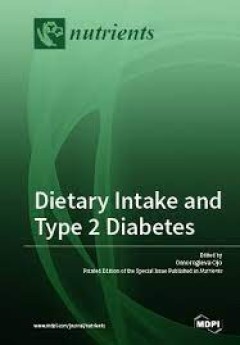
Dietary Intake and Type 2 Diabetes
The prevalence of diabetes is on the increase in the UK and worldwide, partly due to changes in lifestyle which predispose individuals to overweight and obesity. It is estimated that about 90% of the currently diagnosed adults have type 2 diabetes, and based on the World Health Organisation (WHO) report, about 422 million adults were living with diabetes in 2014 compared with 108 million in 198…
- Edition
- -
- ISBN/ISSN
- 978-3-03921-705-2
- Collation
- -
- Series Title
- -
- Call Number
- 572 DIE

Health-Promoting Components of Fruits and Vegetables in Human Health
Diet and lifestyle choices can substantially predispose an individual to, or protect against, many age- and obesity-related chronic diseases. According to the NIH Office of Dietary Supplements, dietary bioactives arecompounds in foodsnot needed for basic human nutrition but responsible for changes in health status.1 These compounds are safe at normal food consumption levels (e.g., anthocyanins …
- Edition
- -
- ISBN/ISSN
- 978-3-03842-629-5
- Collation
- -
- Series Title
- -
- Call Number
- 572 HEA
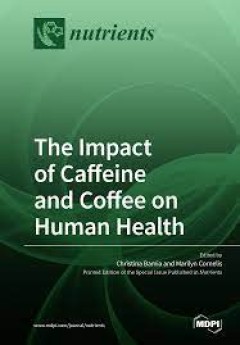
The Impact of Caffeine and Coffee on Human Health
The purpose of this Special Issue is to provide a thorough and up-to-date presentation of research investigating the impact of coffee and/or caffeine intake on various health outcomes. Areas of interest include, but are not limited to, the following topics: Human clinical trials of coffee or caffeine use in relation to disease or intermediate phenotypes. Epidemiological studies of habitual coff…
- Edition
- -
- ISBN/ISSN
- 978-3-03921-835-6
- Collation
- -
- Series Title
- -
- Call Number
- 572 IMP
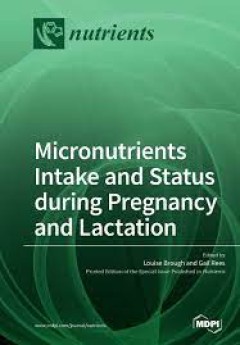
Micronutrients Intake and Status during Pregnancy and Lactation
Optimal nutrition is important during pregnancy and lactation for the health of both the mother and infant. Chronic deficiencies of both macronutrients and micronutrients are well established in developing countries. Although in developed countries overconsumption of macronutrients is a major issue, micronutrient deficiencies which occur concomitantly are no less of a concern. Furthermore in de…
- Edition
- -
- ISBN/ISSN
- 978-3-03897-841-1
- Collation
- -
- Series Title
- -
- Call Number
- 572 MIC

Alternative Routes to Oil Structuring
This Springer Brief gives an overview of recent research conducted in the area of oil structuring starting with a detailed introduction on oleogelation and properties of food-approved building blocks followed by the discussion of some illustrative examples to explain the processing steps required for creating oleogels, advanced characterization (rheological, thermal and microstructural) and som…
- Edition
- Ed. 1
- ISBN/ISSN
- 978-3-319-19138-6
- Collation
- X, 70
- Series Title
- SpringerBriefs in Food, Health, and Nutrition
- Call Number
- 641.3 PAT a
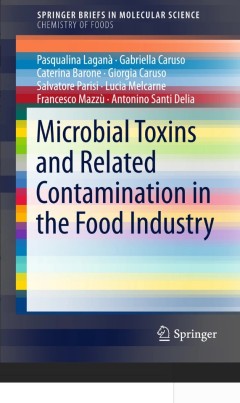
Microbial Toxins and Related Contamination in the Food Industry
This Brief concerns the chemical risk in food products from the viewpoint of microbiology. The “Hazard Analysis and Critical Control Point” (HACCP) approach, which is applied for this purpose, is dedicated to the study and the analysis of all possible dangers by food consumptions and the related countermeasures with the aim of protecting the health of consumers. This difficult objective is …
- Edition
- 1
- ISBN/ISSN
- 978-3-319-20558-8
- Collation
- VI, 101
- Series Title
- SpringerBriefs in Molecular Science
- Call Number
- -
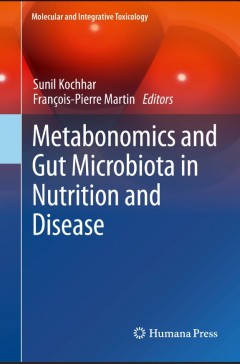
Metabonomics and Gut Microbiota in Nutrition and Disease
This book provides a comprehensive overview of metabonomics and gut microbiota research from molecular analysis to population-based global health considerations. The topics include the discussion of the applications in relation to metabonomics and gut microbiota in nutritional research, in health and disease and a review of future therapeutical, nutraceutical and clinical applications. It also …
- Edition
- -
- ISBN/ISSN
- 978-1-4471-6538-5
- Collation
- XVI, 375
- Series Title
- Molecular and Integrative Toxicology
- Call Number
- -
 Computer Science, Information & General Works
Computer Science, Information & General Works  Philosophy & Psychology
Philosophy & Psychology  Religion
Religion  Social Sciences
Social Sciences  Language
Language  Pure Science
Pure Science  Applied Sciences
Applied Sciences  Art & Recreation
Art & Recreation  Literature
Literature  History & Geography
History & Geography